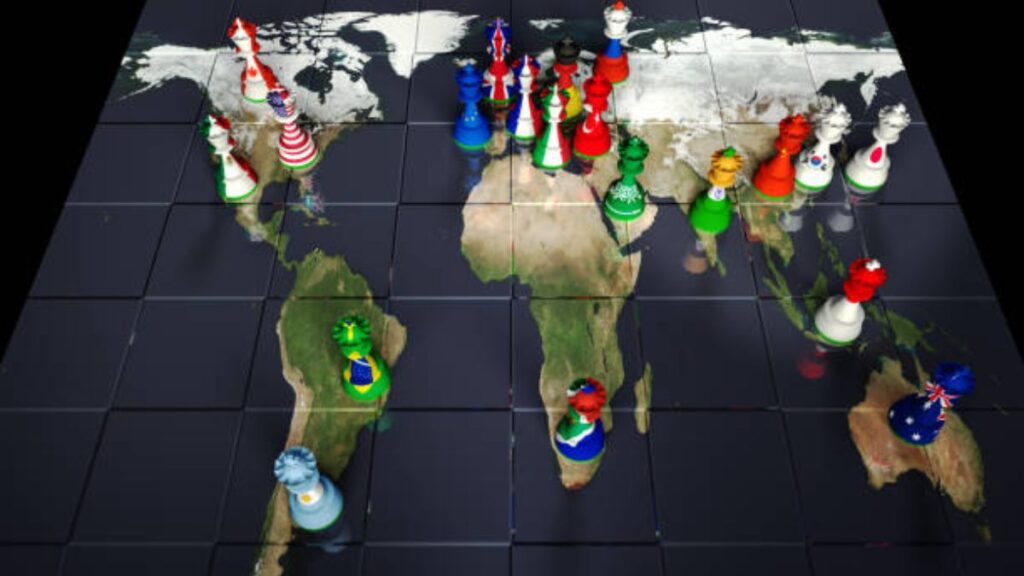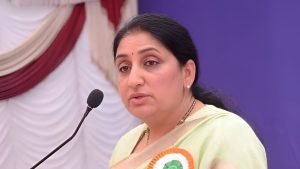How the World Leaders and Media Reacted to India’s Operation Sindoor – Who Sided With Pakistan?

India’s decisive launch of “Operation Sindoor,” a coordinated military strike on terrorist training camps in Pakistan and Pakistan Occupied Jammu and Kashmir, has sent ripples across the globe. The escalation follows the deadly April 22 terrorist attack in Pahalgam that killed 26 Indian and foreign tourists, prompting what New Delhi describes as a “measured and targeted response.”
In retaliation, Pakistan announced it had shot down several Indian warplanes and launched strikes on Indian army positions, the claims that remain unverified. Islamabad condemned India’s move as “an act of war,” triggering fears of a larger conflict between the two nuclear-armed neighbors.
Global Leaders Urge Restraint
While most of the world leaders took a diplomatic route, towing the standard line of excersing restraint, few were prominent to take sides.
Amid the rising tensions, governments and international bodies have issued urgent calls for de-escalation, diplomatic dialogue, and regional stability. ‘Excercising restraint’ has been the keyword across the world leaders.
United Nations: “The World Cannot Afford This”
UN Secretary-General António Guterres voiced deep concern, calling for “maximum military restraint.” His spokesperson noted that the UN is monitoring the situation closely and reiterated that the world “cannot afford a military confrontation between India and Pakistan.” Behind closed doors, the UN Security Council has held informal consultations. Reports suggest some sympathy towards India’s counter-terrorism stance, though public statements remained neutral.
United States: Monitoring Closely, Hopes for Peace
President Donald Trump described the situation as a “shame,” expressing hope that it ends quickly. Secretary of State Marco Rubio stated, “I am monitoring the situation… and will continue to engage both Indian and Pakistani leadership for a peaceful resolution.” The U.S. emphasized ongoing communication with both governments and a commitment to diplomacy.
France: Understands India’s Concerns
French Foreign Minister Jean-Noel Barrot said Paris “understands India’s desire to protect itself against terrorism” but urged both nations to “exercise restraint and protect civilians.” France has initiated high-level contact with counterparts in both countries, signaling its diplomatic interest in diffusing the crisis.
China: Regret, But Balanced Tone
China, a traditional ally of Pakistan, issued a surprisingly balanced statement. “China expresses regret over India’s military actions… and calls on both India and Pakistan to prioritize peace and stability,” said the Ministry of Foreign Affairs. It emphasized that both countries are China’s neighbors and must avoid actions that worsen tensions.
Russia: Condemns Terrorism, Urges Restraint
Moscow expressed deep concern about “the deepening military confrontation” and condemned all forms of terrorism. The Russian Foreign Ministry called on both sides to de-escalate and pursue diplomacy, highlighting its warm relations with both New Delhi and Islamabad.
Israel: Open Support for India
Israel was the only major power to explicitly back India’s right to self-defense. Ambassador Reuven Azar stated on X, “Terrorists should know there’s no place to hide from their heinous crimes against the innocent. #OperationSindoor.” This mirrors Israel’s own response to attacks on its territory.
Japan: Condemns Terrorism, Warns of Escalation
Japan strongly condemned the April 22 terrorist attack and expressed concern over a possible full-scale conflict. Chief Cabinet Secretary Yoshimasa Hayashi urged both countries to stabilize the situation through dialogue, reinforcing Tokyo’s commitment to South Asian peace.
United Kingdom: Calls for Dialogue
Although slow to react, British Foreign Minister David Lammy labeled the situation “a serious concern” and called for direct engagement between the two governments. Given the UK’s significant South Asian diaspora, diplomatic involvement behind the scenes is also expected.
Qatar and UAE: Diplomatic Channels Must Stay Open
Both Gulf nations voiced concern. Qatar urged that “communication channels remain open,” while the UAE emphasized diplomacy as “the most effective means of resolving crises.” UAE Foreign Minister Abdullah bin Zayed reiterated the need for peaceful dialogue.
In a statement released on X, Qatar’s foreign ministry stated on Wednesday regarding Operation Sindoor, “The State of Qatar is following with deep concern the continued escalation between the Republic of India and the Islamic Republic of Pakistan and Qatar urges both countries to exercise maximum restraint, give priority to the voice of wisdom, respect the principles of good neighborliness, and resolve the crisis through diplomatic means.”
Turkey: Tilted Towards Pakistan
Turkiye’s foreign affairs ministry posted a statement on X, saying, “We are following the developments between Pakistan and India with concern. The attack carried out by India last night (6 May) raises the risk of an all-out war. We condemn such provocative steps as well as attacks targeting civilians and civilian infrastructure.”
The Turkish foreign ministry called on both parties to “exercise common sense and refrain from unilateral actions.”
They added, “We expect that measures will be taken to reduce tensions in the region as soon as possible and that the necessary mechanisms, including in the field of counter-terrorism, will be put in place to prevent the recurrence of similar incidents. We also support Pakistan’s call for an investigation into the 22 April terrorist attack.”
Azerbaijan: Sided with Pakistan
Azerbaijan also issued a statement soon after the attack, condemning violence against Pakistan.
In their statement they said, “The Republic of Azerbaijan expresses its concern over the further escalation of tension between the Republic of India and the Islamic Republic of Pakistan.”
Further, the foreign ministry wrote, “We condemn military attacks against the Islamic Republic of Pakistan that killed and injured several civilians. Being in solidarity with the people of Pakistan, we express condolences to the families of the innocent victims and wish a speedy recovery to those who were injured.”
Iran: Deeply Concerned
Iran’s Foreign Ministry expressed “serious concern” over the military escalation and urged restraint. Tehran hopes both countries will choose de-escalation over retaliation.
Casualties and Damage
According to early estimates, 26 people have died in Pakistan and 10 in Kashmir on India’s side of LOC since the strikes began. Visuals from the Muzaffarabad region showed collapsed buildings, including a mosque, where volunteers pulled out bodies from the rubble.
Operation Sindoor: Symbolic and Strategic
Named after the traditional red vermilion that symbolizes sacrifice and protection in Hindu culture, “Operation Sindoor” was designed as a strategic, limited, and symbolic retaliation. The mission targeted only terrorist facilities and avoided civilian infrastructure.
Why the Name Matters
Married Hindu women apply Sindoor on their foreheads as a symbol of their marriage and their husbands were killed in front of their eyes during Pahalgam attack, symbolically removing their Sindoor. Hence this operation was aptly named as ‘Operation Sindoor’ to avenge the killings.
A Broader Message to the World
Global reactions, while cautious, show emerging sympathy for India’s fight against terrorism. While most nations have called for restraint, few like Turkeye and Azerbaijan have openly condemned India. However across the world, the emphasis is on avoiding further escalation — a position that aligns with New Delhi’s stance that the operation was a one-time strike, not the beginning of a military campaign.
What Next?
If Pakistan’s counter-strikes intensify or India perceives further threats, diplomatic channels could give way to more serious military confrontation. The UN Security Council may be compelled to take formal action if a ceasefire fails to hold. However, the current international mood favors restraint, diplomacy, and mediation over confrontation.
Conclusion
Operation Sindoor has triggered a global balancing act. As countries urge calm and condemn terrorism, the international community walks a fine line — supporting India’s right to self-defense while trying to prevent South Asia from spiraling into full-blown war. For now, the world watches, hoping Operation Sindoor remains a limited military chapter rather than the start of a dangerous new volume in India-Pakistan escalations.










